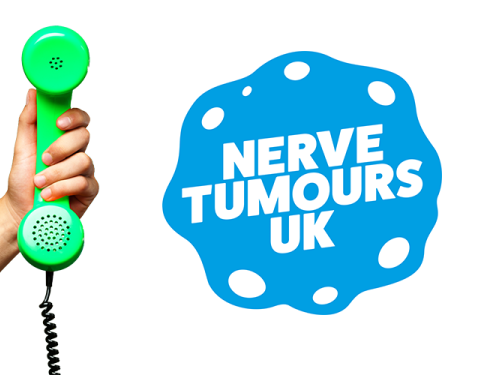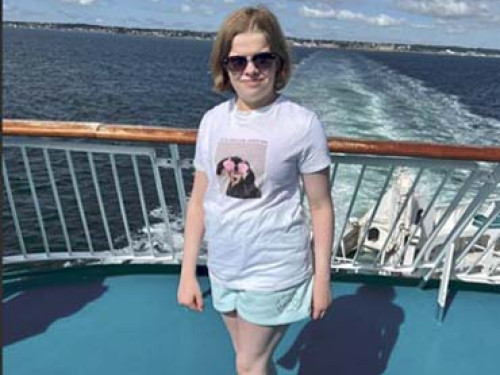Ella’s Story
10 July 2025
My name is Ella, and I am 20 years old, studying for a BSc in Accounting and Finance at Anglia Ruskin University (ARU). Living with Neurofibromatosis Type One (NF1) is a unique challenge each and every day. As I come to the end of my second year, I wanted to share my personal experiences of dealing with NF1 at university: covering the hurdles of disclosing my condition to lecturers and other university staff members, the challenges of making new friends, learning to be independent, and the struggle of getting to lectures.
Reflections on University: Graduation 07.2025
Graduation Day at Chelmsford Cathedral
Today marks the conclusion of an important chapter and the beginning of a new journey. The ceremony was held at the historic Chelmsford Cathedral, a truly beautiful and inspiring setting. Before the event began, I had the opportunity to reconnect with my fellow classmates. We shared stories, reflected on our journeys, and captured memorable moments together outside the cathedral.
Upon entering, we were reminded of a significant tradition: the tassel on our caps had to be positioned on the left side to signify that we had officially graduated. It was a small gesture, yet deeply symbolic, and it made the achievement feel even more real.
Walking across the stage was a humbling experience. As tradition requires, I doffed my cap to the Vice Chancellor of the university, a gesture representing respect and accomplishment.
Standing there, surrounded by faculty and peers, I felt a profound sense of pride and gratitude.
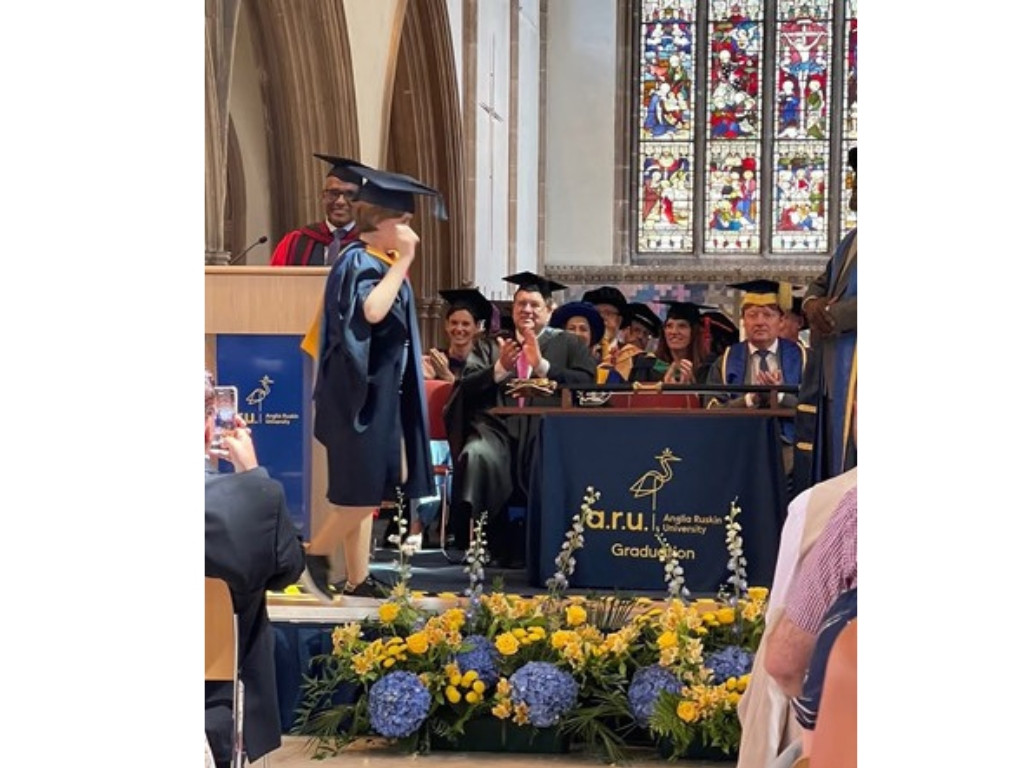
This milestone would not have been possible without the unwavering support of my family, friends, mentors, and Nerve Tumours UK throughout this journey.
I am very thankful that my family were there to celebrate with me.
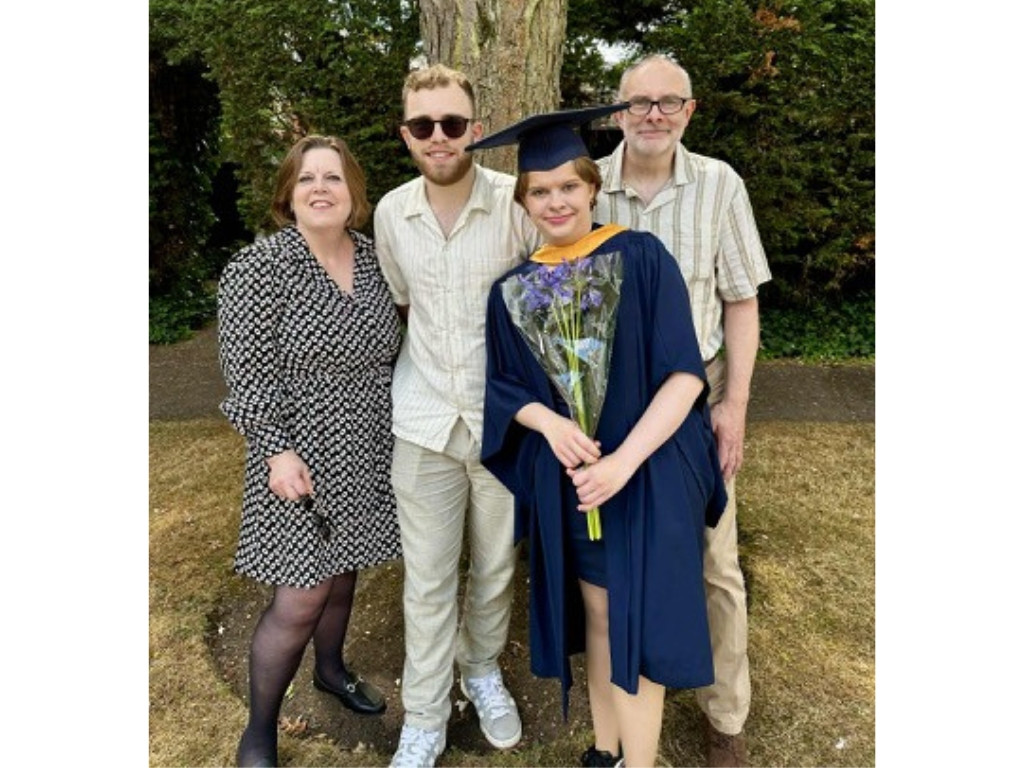
Here’s to new opportunities, continuous growth, and making a meaningful impact in the future.
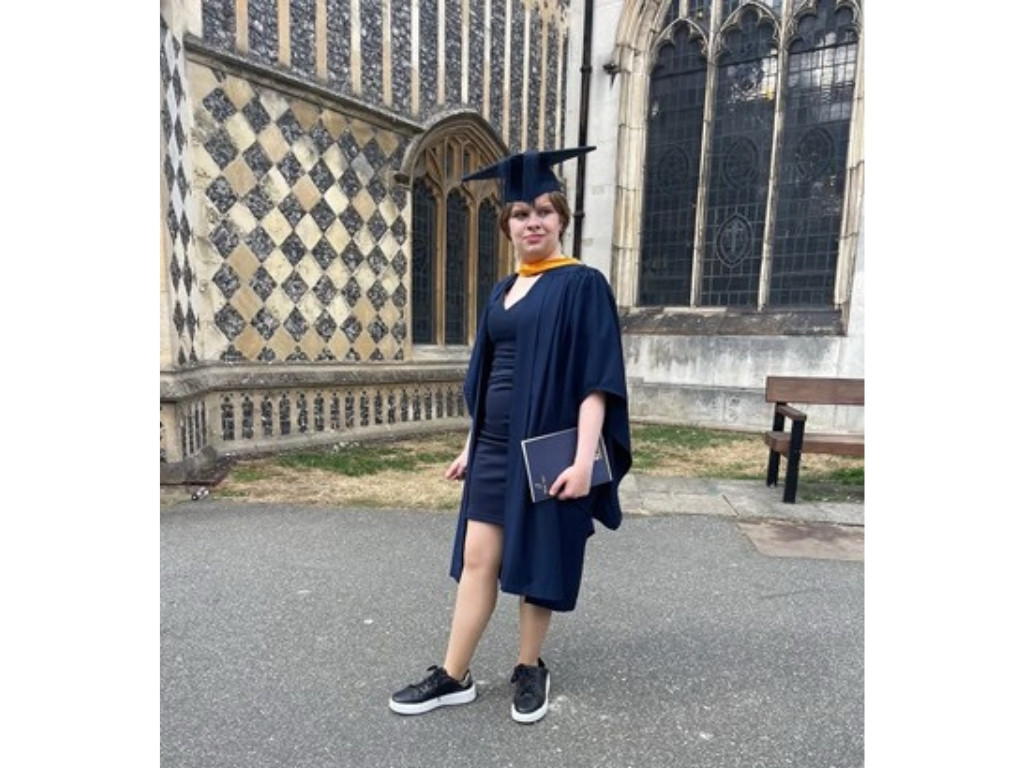
Reflections on University: Results 07.2025
I finally received my university results a few weeks ago, and I'm absolutely thrilled to share that I've achieved an upper second-class honours degree! Honestly, when I saw the final classification, I was completely overcome.
It was a moment of such intense relief and joy that I actually had happy tears streaming down my face. I've put in an incredible amount of effort over the past few weeks, especially with the final push, so to see it all pay off like this is just phenomenal.
"I'm absolutely thrilled to share that I've achieved an upper second-class honours degree! "
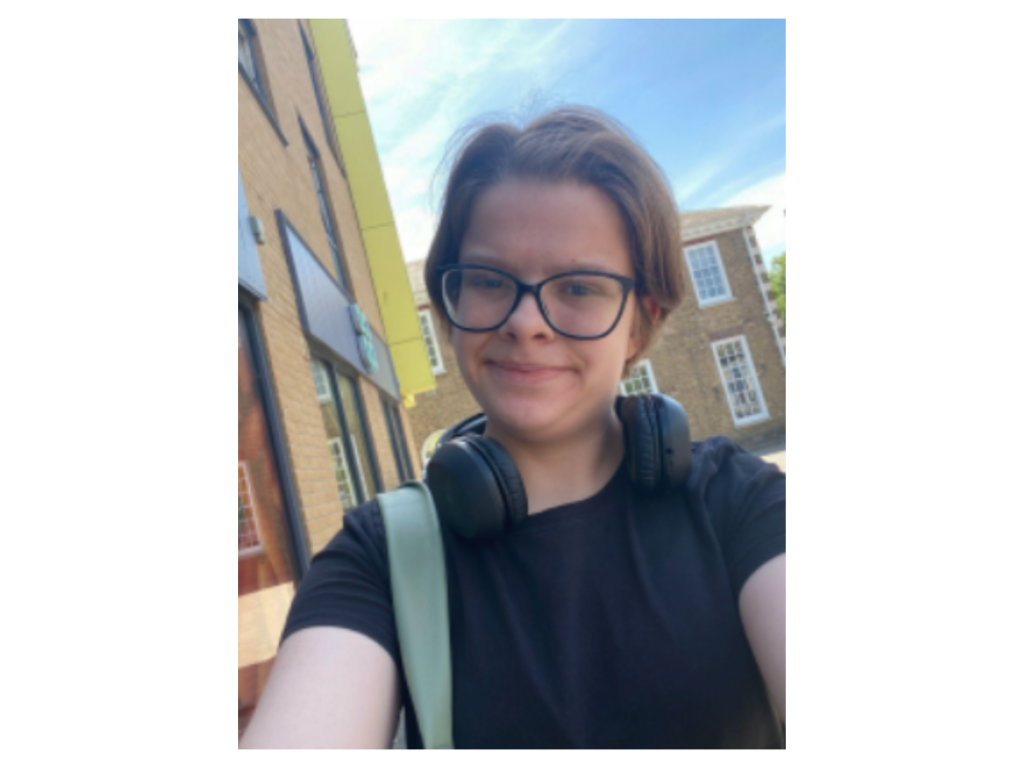
The period leading up to these official results has been incredibly nerve-wracking, particularly the wait for my dissertation mark. That really felt like the make-or-break element of my entire degree. I've been checking my emails and the student portal constantly, just itching to find out.
But the good news doesn't stop there! For my dissertation, I achieved an amazing 77%, which is officially a first-class mark. I am genuinely so pleased with myself for that. It represents countless hours of research, writing, and late nights, and seeing that 'first' next to it makes every single one of those moments worthwhile.
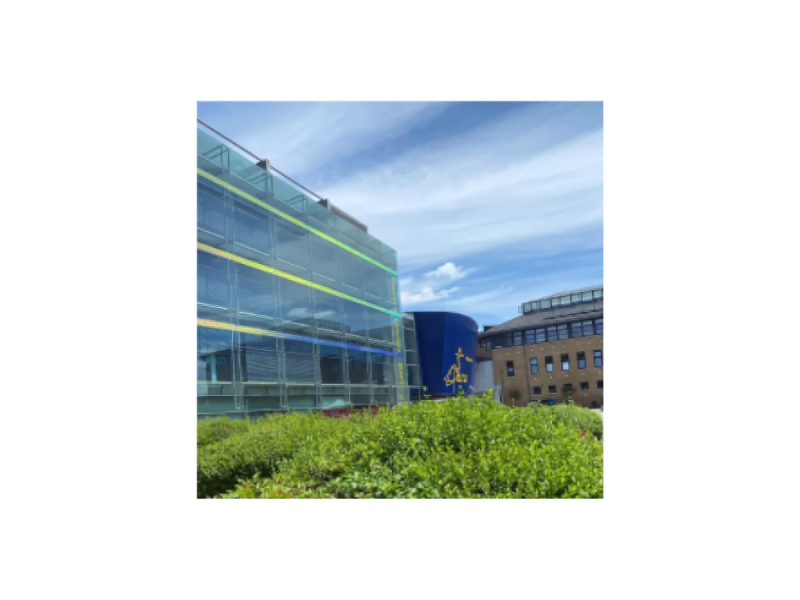
Ella's Campus, July 2025.
Now, with the academic stress behind me, I'm just buzzing with excitement for what's next. I can't wait to celebrate my graduation ceremony, and it means the world to me that my parents will be there, right beside me, to share in the moment. My brother will also be coming along with his girlfriend, so it'll be a really special day, marking the end of one chapter and the exciting beginning of another!
After applying for over one hundred jobs and receiving either rejections or no responses at all, I made the difficult decision to apply for Universal Credit. I had been actively searching for work over a long period of time, consistently updating my CV, writing tailored cover letters, and applying for roles that matched my skills and experience. Despite my determination and continued effort, I was unable to secure employment, which led me to seek financial support. Applying for Universal Credit has allowed me to stay focused on my job search while also meeting my basic living needs.
At first, I felt very uncomfortable with the idea of applying for benefits. I was embarrassed about having to sign on, and I struggled with the thought that I had somehow failed. It was a hard step to take, as I had always aimed to be independent and support myself. However, after speaking with my parents and receiving their full support, I began to see things differently. They reminded me that there is no shame in asking for help when it is genuinely needed, and that many people face challenges when trying to find work, especially in a competitive job market.
–"There is no shame in asking for help when it is genuinely needed."
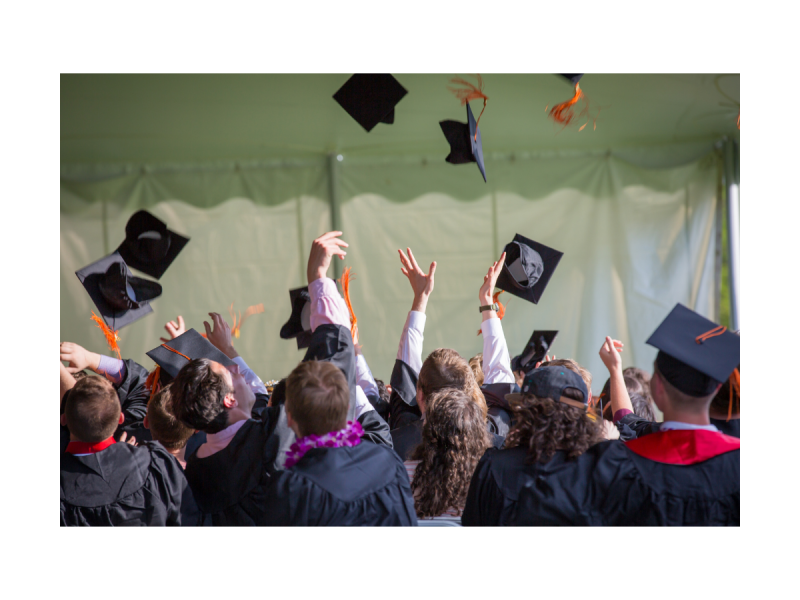
Their encouragement helped me change my mindset and build back my confidence. I now realise that claiming Universal Credit is not a sign of failure, but a temporary measure to help me stay on my feet while I continue looking for employment. I am using this time to reflect on my strengths, consider other possible career paths, and explore opportunities for personal development and training. My goal is still to find a meaningful and stable job, and I remain motivated to keep applying and improving wherever I can.
I believe that with continued effort and the right support, I will be able to find work in the near future. I am staying positive and open-minded, and I am doing everything I can to prepare myself for when the right opportunity comes along.
"I am doing everything I can to prepare myself for when the right opportunity comes along"
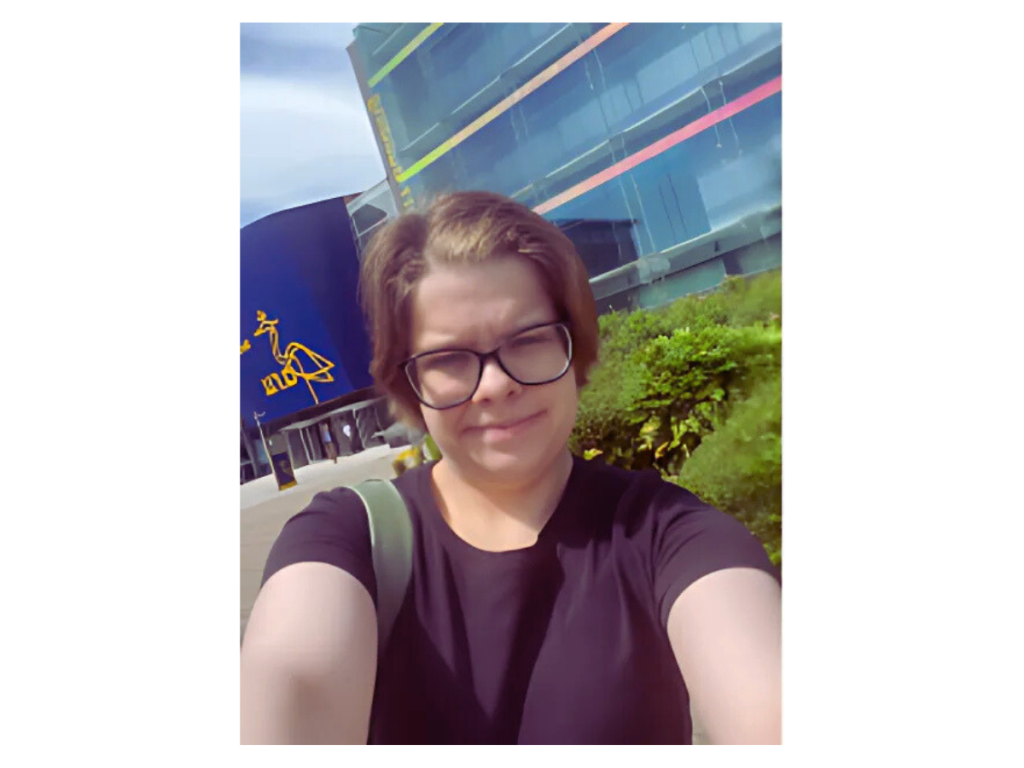
Speaking Up for Disabled and Underrepresented Students at University I recently took part in a university-led discussion about how the institution has been failing to properly support underrepresented students, particularly those who are disabled or neurodivergent. During the session, I spoke about how many lecturers still have little or no understanding of the Equality Act 2010 and how this lack of knowledge is contributing to the struggles disabled students face. It is not just poor practice; it is a failure to meet legal responsibilities.
I raised the issue of lecturers ignoring or dismissing the reasonable adjustments that students are entitled to. This creates unnecessary barriers and makes it harder for disabled students to succeed, both academically and personally. These problems are not isolated. They reflect deeper and more systemic issues within the structure of the university.
–"I spoke about how many lecturers still have little or no understanding of the Equality Act 2010 and how this lack of knowledge is contributing to the struggles disabled students face. It is not just poor practice; it is a failure to meet legal responsibilities. "
I also spoke about how many courses are still built in a one-size-fits-all way, with little flexibility for students who learn differently. Rather than expecting students to adapt to rigid and outdated teaching methods, the university needs to make sure that its courses and lectures are designed with inclusion in mind from the beginning.
I really hope that this discussion leads to genuine and lasting change. Universities must go beyond simply acknowledging their failings. They need to take real action to reform course design, lecture delivery, and how staff are trained. There must be meaningful investment in accessible teaching practices and proper mechanisms for students to give feedback that leads to action. Supporting disabled and neurodivergent students is not optional. It is a legal duty and an essential part of creating an equal and supportive learning environment for everyone.
Reflections on University Life 05.2025
Looking back over my time at university, I have encountered a number of significant challenges, many of which were directly related to my medical conditions, particularly NF. Living with NF alongside other health issues has often had a profound effect on my ability to engage with university life in the same way as my peers. Unfortunately, one of the biggest obstacles I faced was the lack of understanding from some lecturers and university staff regarding how my condition impacts my health, daily routines, and academic performance. At times, I found it incredibly difficult to approach lecturers and explain my situation. There seemed to be a general lack of awareness and knowledge about NF and the broader implications it can have, not just physically but emotionally and cognitively.
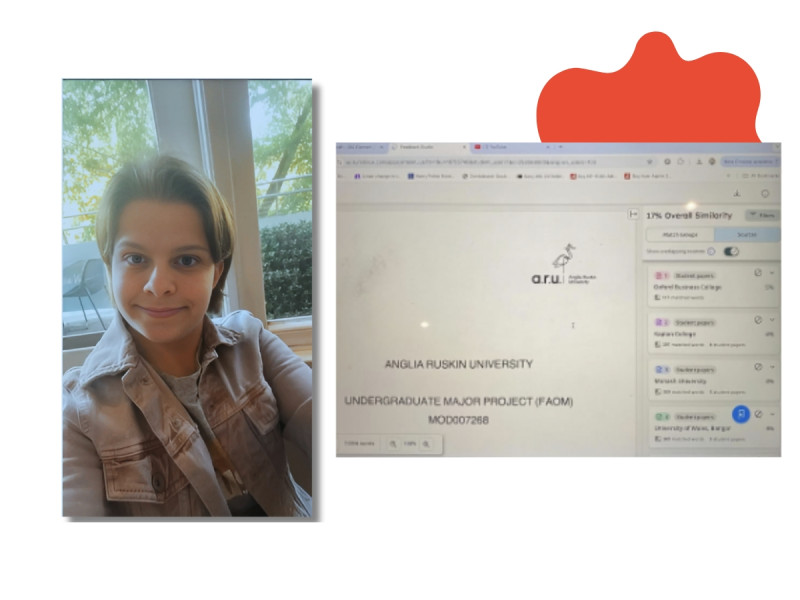
–"There seemed to be a general lack of awareness and knowledge about NF and the broader implications it can have, not just physically but emotionally and cognitively."
Throughout my academic journey, I experienced moments where I felt unsupported and misunderstood. In some cases, requests for help were met with indifference or confusion, which left me feeling incredibly isolated. This is a common experience for many students with disabilities and it highlights a broader issue within higher education, a gap between policy and practice. While many universities have policies in place to support disabled students, the practical implementation of these policies can vary greatly depending on individual staff members and departments.
Thankfully, there were also moments of real support, particularly from my Disability Officer. Their role was instrumental in helping me navigate the system and access the help I needed. With their support, I was able to obtain exam accommodations, deadline extensions, and liaise more effectively with academic staff. The contrast between my initial struggles and the support I eventually received shows just how important it is to have advocates within the university who truly understand disability and are committed to inclusion.
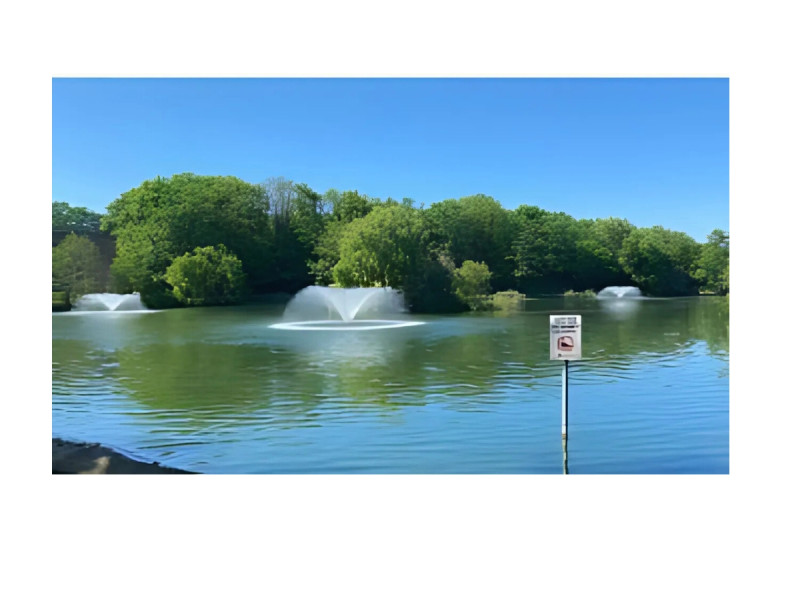
Ella's Campus
That said, I still feel strongly that more must be done in terms of disability awareness and anti-discrimination training across all university departments. It is not enough for only the disability services team to be informed. Lecturers, tutors, administrative staff, and academic supervisors all play vital roles in a student’s educational experience. Proper training on disability issues should be mandatory and ongoing, not optional or occasional. Only then can we begin to create a university environment where students with health conditions or disabilities do not have to fight for understanding and fairness.
Over the past few months, my experience has taken a more positive turn, especially as I worked on my Undergraduate Major Project. During this time, I received a much higher level of support from my academic supervisor, Big shout to Dr Lewis who has been incredible and has given me emotional support. I was granted an extension, which allowed me the time I needed to complete my work without jeopardising my health. Dr Leiws also made time for additional meetings, offering guidance and reassurance that helped me stay motivated and focused. This level of support made a huge difference to my confidence and ability to manage a large and demanding piece of work.
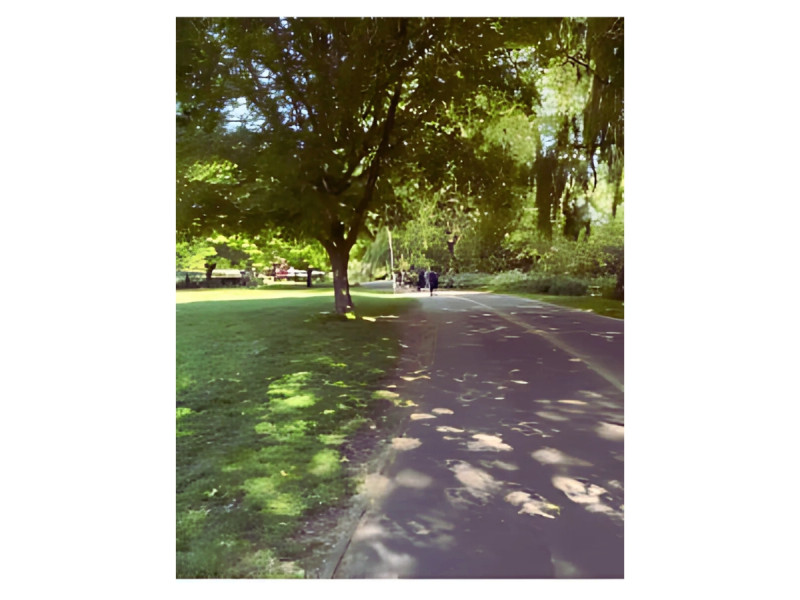
Ella's Campus
One particular challenge I faced during this period was the occasional restriction of access to university resources, such as online journals and digital libraries. These disruptions, although often technical or administrative in nature, had a real impact on my ability to conduct effective research. For students like myself who may already be dealing with health-related stressors, such issues can create additional barriers and make an already demanding process even more difficult. Ensuring reliable and uninterrupted access to academic resources is essential, especially for students working under tight deadlines or specific health constraints.
I also experienced instances of harassment and bullying from fellow students. These encounters were incredibly distressing and had a significant impact on my mental health and sense of belonging within the university community. At times, I was subjected to insensitive comments, exclusion from group activities, and subtle forms of mockery relating to my condition and the academic adjustments I received. What made these experiences even more painful was the feeling that I could not always speak out or seek help without fear of being dismissed or not taken seriously. It is important to recognise that bullying and harassment do not always appear as obvious acts of aggression. They can be subtle, persistent, and deeply damaging. Universities must foster a culture where respect, empathy and inclusion are prioritised, and where students feel safe and supported in reporting any form of discrimination or mistreatment. Addressing this issue requires not only clear policies but also proactive education and awareness initiatives that challenge stigma and promote genuine understanding.
–"It is my sincere belief that universities must do more to create spaces where all students feel seen, heard, and valued."
I have learnt the value of exercise, particularly walking for good mental health. I have found some parks and natural reserve spots which help me destress.
In reflecting on my entire university journey, I feel a mixture of pride, frustration, and hope. I am proud of what I have achieved, particularly in the face of considerable adversity. I am frustrated by the lack of consistent understanding and support that still exists within academic institutions. But I am also hopeful. I Hope that by speaking out, sharing experiences, and advocating for change, future students with NF and other medical conditions will find a more inclusive, supportive, and understanding environment.
It is my sincere belief that universities must do more to create spaces where all students feel seen, heard, and valued. Disability awareness training, improved communication, and a culture of genuine empathy are not just nice to have, they are essential! They are essential. With the right support, students with disabilities can thrive academically and personally. I hope that my journey can be part of the ongoing conversation that leads to real and lasting change within higher education.
Living with Neurofibromatosis Type One (NF1) is a unique challenge each and every day.
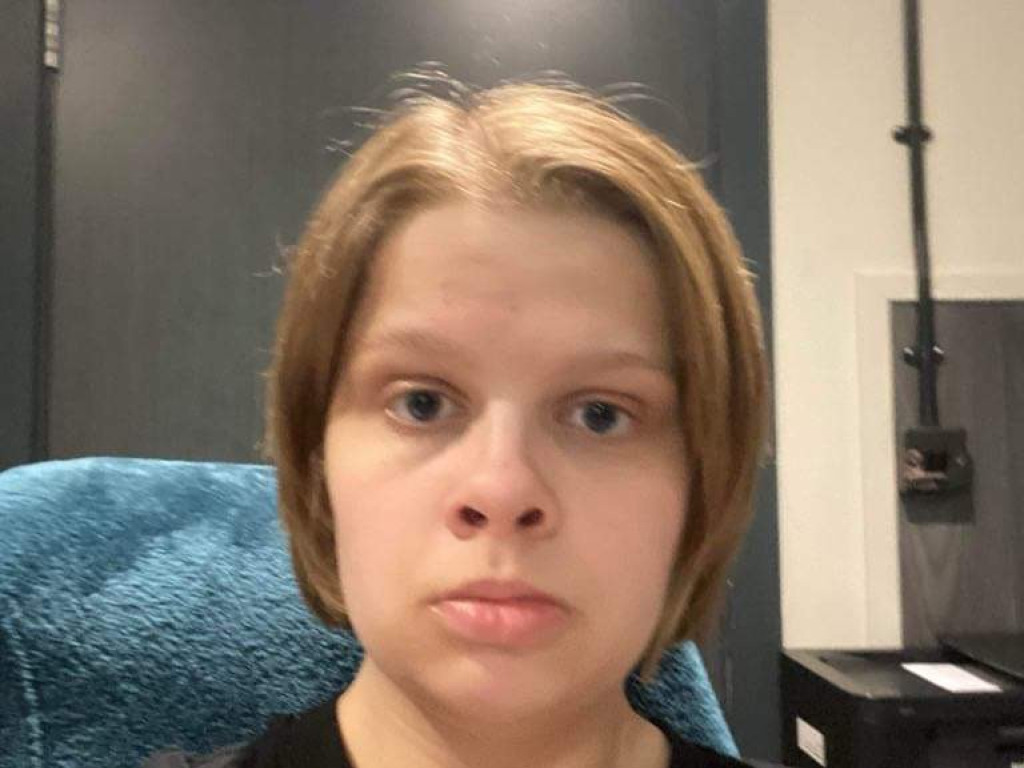
One of the earliest and most daunting tasks was deciding when and how to tell my lecturers about my condition each semester. As many people with NF1, NF2-SWN, and Schwannomatosis know, these conditions are not well-known, and I was apprehensive about how they might react or whether they would understand the implications it has on my daily life. I worried about being seen as different or needing special treatment. However, I knew that to receive the necessary accommodations, I had to be upfront.
Approaching lecturers with this information required a lot of courage. I decided to speak to my lecturers after my lessons were over and everyone had gone because I wanted it to be private and for them to understand how NF1 might affect my academic performance. Most (though not all) of my lecturers were understanding and supportive, which alleviated some of
my fears. Nevertheless, the process was emotionally exhausting, and there were times when I questioned whether I should even mention it at all.
I knew that to receive the necessary accommodations, I had to be upfront.
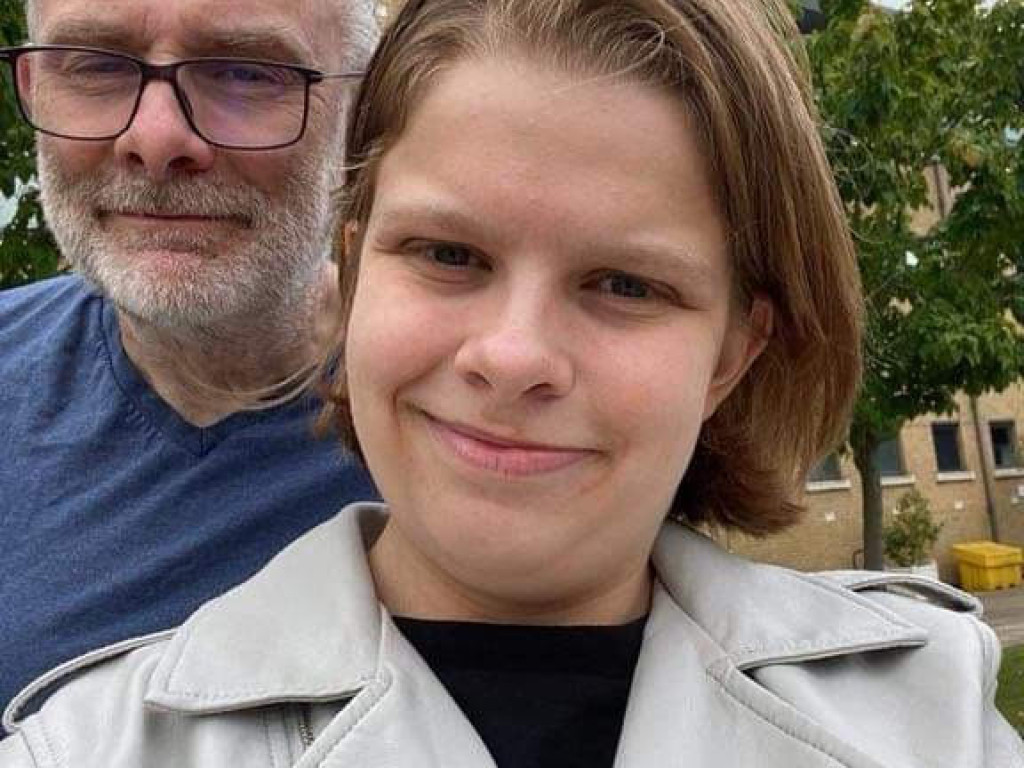
I believe that within the first few weeks of starting university, it is vital that you speak to your disability team, as they are very welcoming and supportive. They want you to succeed at university, have a great time, and graduate with a degree. They have put support in place, as well as the Disabled Students' Allowance (DSA), which will help me throughout my studies. I can go to my Disability Officer at university at any time, for example, when I’m having issues with lecturers who are not very understanding of medical conditions, and she will contact them. They may never reply to her, but you have to at least try to get the help you need. My university experience with Neurofibromatosis has been a rollercoaster of challenges and victories. While there were numerous obstacles, each one taught me valuable lessons about resilience, self- advocacy, and the importance of a supportive community.
–"It's okay to seek help, be honest about your needs, and, most importantly, believe in your ability to succeed despite the hurdles."
DSA is an allowance (not a loan) to help disabled students throughout university by supplying technology and support. As I am physically and mentally disabled and can’t walk far, they make sure I have a supportive chair and a computer with built-in features to help me record lectures when I am not well. Disclosing my condition to lecturers was a very significant milestone in my journey through life. Living with NF1 at university has not been easy, but it has shaped me into a stronger, more determined individual. For anyone facing similar challenges, remember that it's okay to seek help, be honest about your needs, and, most importantly, believe in your ability to succeed despite the hurdles.


